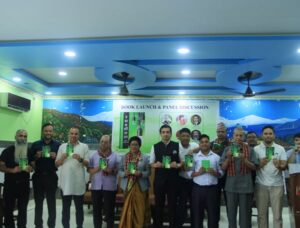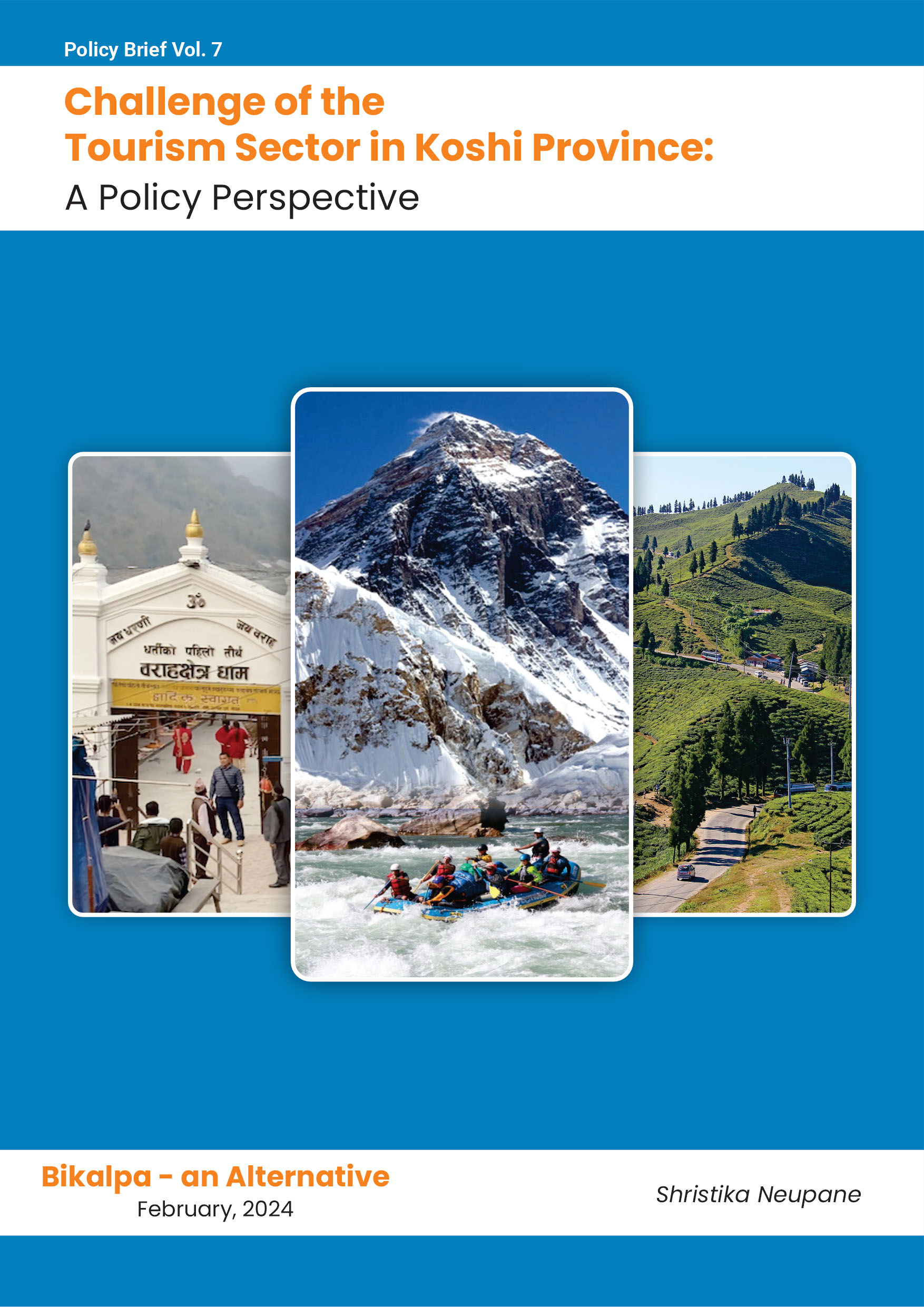On July 18, 2025, Bikalpa – an Alternative, organized a Panel Discussion and Book Launch event in collaboration with Institute for Economic Affairs (IEA) and Accountability Lab Nepal, that brought policymakers, entrepreneurs, scholars, civil society members and youths of Biratnagar together in a common platform. The event marked the official release of the Nepali translation of Entrepreneurship: An Introduction, originally authored by renowned British economist Dr. Eamonn Butler.

The book, translated into Nepali by journalist and writer Nishant Dhungana, seeks to demystify the concept of entrepreneurship and make it accessible to a broader Nepali audience.
Published by We Read Publications, the book outlines the principles, socio-economic impact, and practical considerations of entrepreneurship in clear and straightforward language.
The launch program featured prominent speakers, including honorable Manish Jha, spokesperson for the National Independent Party; honorable Meena Shrestha, a member of the Koshi Provincial Assembly; young entrepreneur Pratik Raut; Rajivdhar Joshi, the head of We Read Publications; And the translator Mr. Nishant Dhungana. The event was moderated Bikalpa Fellow Samir Chhetri, and the Panel Discussion was moderated by Basanta Adhikari, Executive Director of Bikalpa.
At its core, Entrepreneurship: An Introduction serves as a foundational text for those interested in understanding the role of entrepreneurs in society. Translator Nishant Dhungana shared his motivation behind taking on the translation, noting the scarcity of quality
entrepreneurship-related literature in the Nepali language.
“This book simplifies an often-complex subject and presents it in a way that resonates with our local context,” said Dhungana. “I hope it encourages more individuals, especially young people, to consider entrepreneurship as a viable and fulfilling career path.”
The book covers a wide range of themes, from the economic role of entrepreneurs and the importance of innovation, to the risks of overregulation and the various types of entrepreneurial activities found in society. It argues for a policy environment that supports risk-takers and visionaries, rather than one that stifles them through bureaucratic barriers.
National Independent Party spokesperson, honorable Manish Jha, delivered a
thought-provoking address that critically examined the state of entrepreneurship in Nepal. While praising the book for making the subject accessible, he pointed to structural challenges that inhibit entrepreneurial growth in the country.
“There is no truly enabling environment for entrepreneurs in Nepal,” Jha said. “From the difficulty of registering and closing a business to the persistent vilification of entrepreneurs as profiteers or crony capitalists, the system often works against those who try to create value.”
He further emphasized the need for the state to reposition itself, not as a contractor or gatekeeper, but as a facilitator of entrepreneurship. “Only when the government plays a supportive role will we see sustainable development through enterprise,” he remarked.
Entrepreneur Pratik Raut also weighed in, drawing attention to the discrepancy between rhetoric and action. “Although it is frequently stated that the private sector contributes up to 80 percent of Nepal’s economy, we must ask: how much space does the private sector occupy in policymaking and parliamentary discussions?” he posed. “It is time we match our words with action and create a business environment that is truly supportive.”
Provincial Assembly member Honorable Meena Shrestha highlighted the book’s potential to influence both individuals and institutions. “The book presents the ideas of entrepreneurship with clarity and relevant examples,” she said. “It can be a valuable resource not only for aspiring entrepreneurs but also for policymakers seeking to create meaningful reforms.”
Echoing this sentiment, economist Dr. Bhesh Bahadur Dhamala commended the book for addressing both theoretical foundations and practical implications. “The questions ‘What is entrepreneurship?’ and ‘Why does it matter?’ are answered in this book with logical and relatable explanations,” he noted. “It is a timely resource for our society.”
Publisher Rajivdhar Joshi observed a growing demand for self-help and entrepreneurship literature in Nepal, especially among the youth. “However, the availability of high-quality, locally relevant content in Nepali is still limited,” he remarked. “This translation contributes meaningfully to filling that gap.”
Basanta Adhikari, founder and executive director of Bikalpa, reflected on the broader purpose of the event. “Entrepreneurship is increasingly a topic of interest in Nepal, but the discourse must be grounded in knowledge that is both accessible and actionable,” he said. “This book serves that need and aligns with our goal of promoting a freer, more prosperous society.”
Bikalpa Fellows took the initiation to organize the event where 173 participants took part in the healthy discussion that was coveraged by 9 media.
Looking Ahead

The release of Entrepreneurship: An Introduction in Nepali signifies more than the publication of a book, it represents a movement toward making entrepreneurship a central pillar of Nepal’s development agenda. With the support of engaged civil society, thoughtful policymakers, and courageous entrepreneurs, Nepal can begin to unlock the economic potential that lies within its people.
As this book finds its way into the hands of students, innovators, and future business leaders, it may well serve as the spark that ignites a more dynamic, opportunity-rich economy, one built on innovation, resilience, and the courage to take risks.
In a time when economic uncertainty often dominates national conversations, initiatives like this serve as a reminder: knowledge, when made accessible and relevant, can become the most powerful catalyst for change.
Links of Media Coverage
MakaluTV
NagarikNews
EKantipur
ArunKhabar
Sansarikhabar
Entertainmentkhabar
Khabarpurwanchal
Firescreentv
Sajhasarokar











